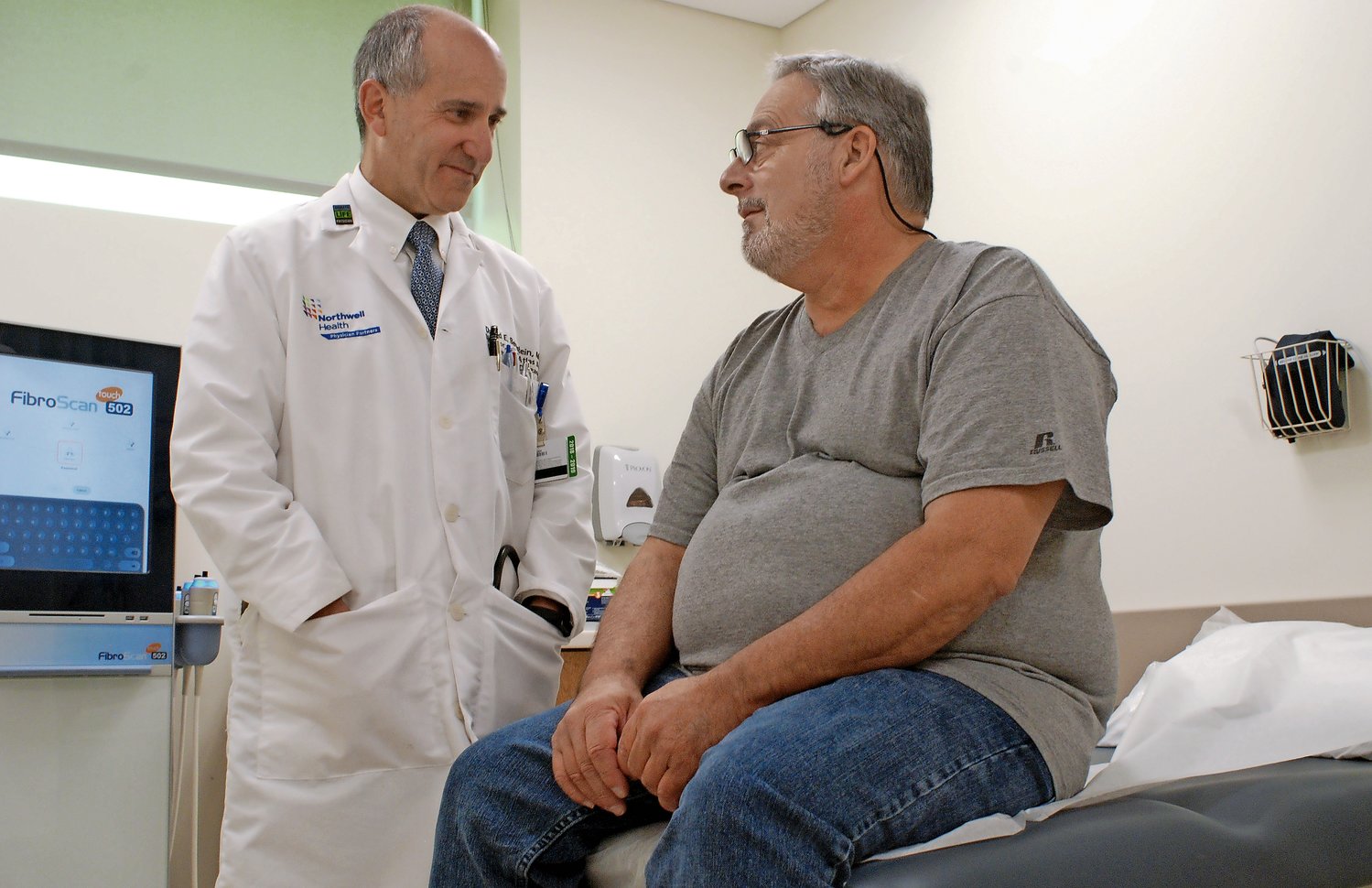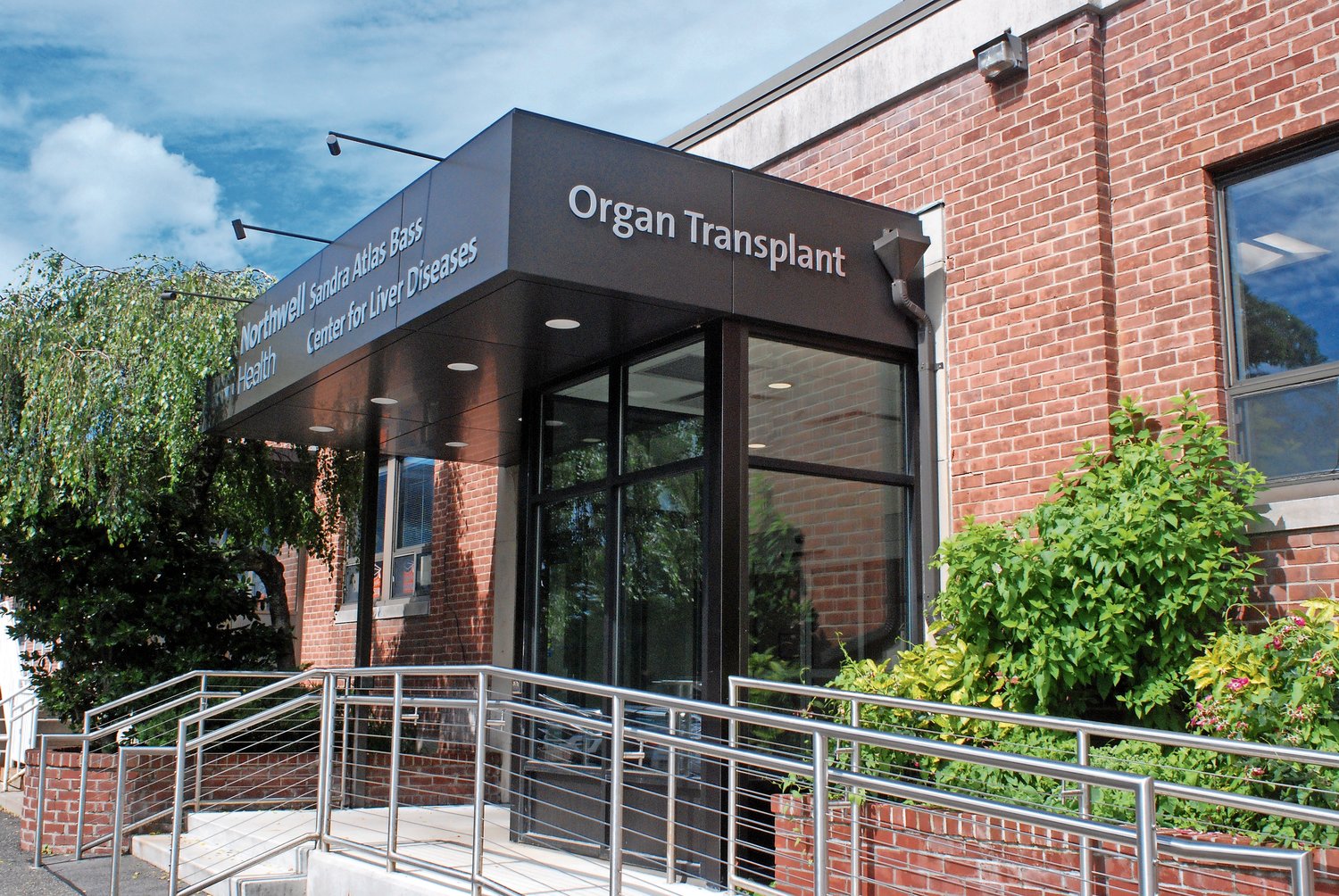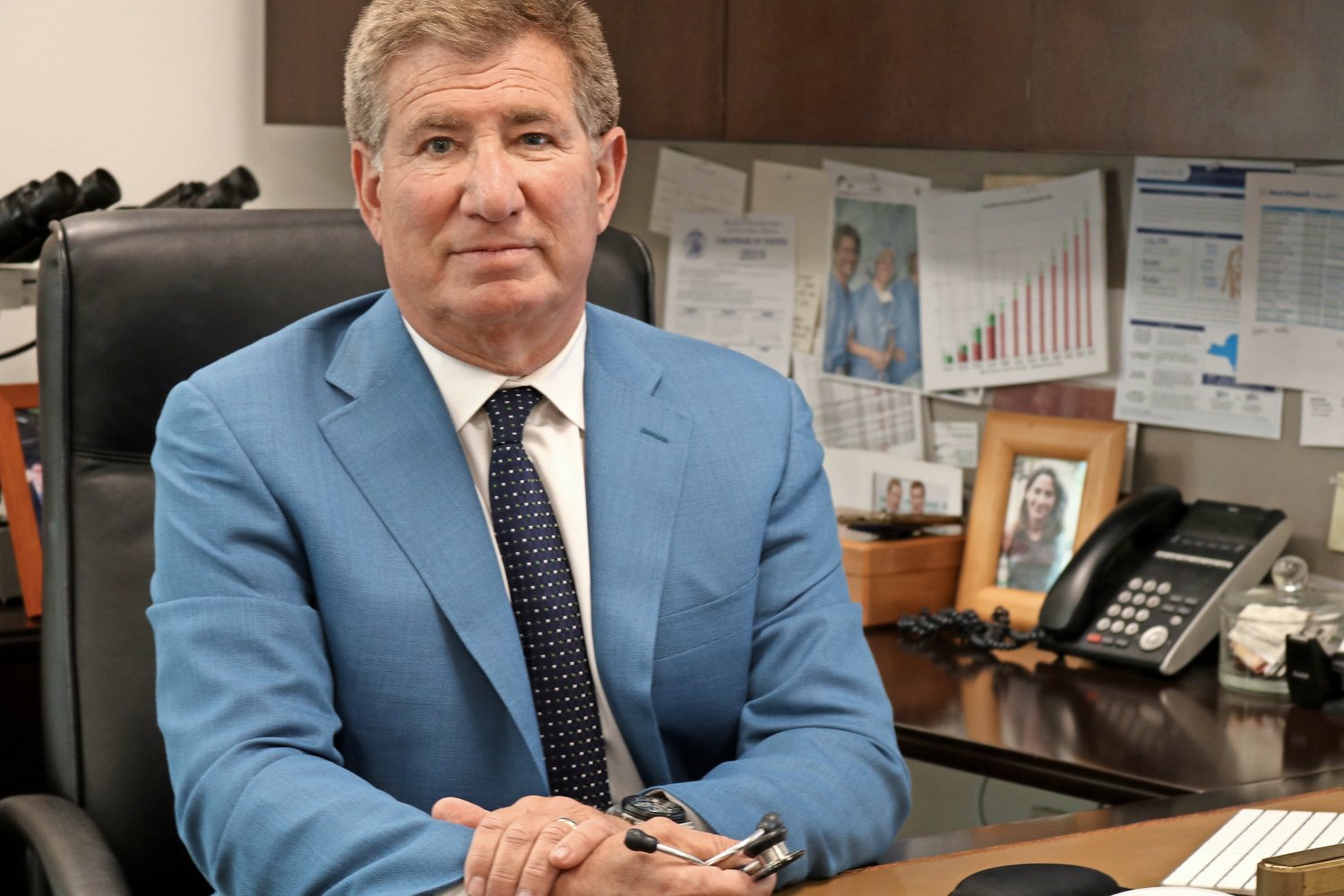Liver transplant center is ‘a godsend’
Northwell Health opens first program on L.I. at North Shore University Hospital
George Conte reached the very high end of the Medical End-Stage Liver Disease scale last summer. The low end of the range is 6 — mild liver disease — and the upper end is 40 — near death. Conte, a milk truck driver and grandfather from Floral Park, now 63, was fading fast.
Without a new liver, Conte had only days to live. Then a 20-year-old woman who had recently given birth suffered a brain aneurysm, dying instantly. She was a donor match. Her liver saved Conte’s life. He received the transplanted organ on Aug. 7, 2018, at Montefiore Hospital in the Bronx.
He had spent three years shuffling back and forth to the Bronx for weekly blood tests. The trips were exhausting and harrowing for Conte, who was in constant pain, often dazed and confused, and comatose at times, he said.
“It got very bad at one point,” he said gravely.
Now, however, liver patients like Conte need not trek beyond Long Island to receive transplants. The state Department of Health recently approved the Island’s first adult liver transplant program at Northwell Health’s North Shore University Hospital in Manhasset. Surgeons and doctors at the 15,000-square-foot Sandra Atlas Bass Center for Liver Diseases, on the NSUH campus, began compiling a list of patients in greatest need of transplants in June. Now they are waiting for livers to become available to start transplanting them into patients.
“The burden of end-stage liver disease is enormous for Long Islanders, who in the past were forced to look elsewhere for life-saving treatment,” said Dr. Lewis Teperman, vice chairman of surgery at NSUH and director of organ transplantation at Northwell Health. “It’s time that care for these patients be provided close to home.”
‘He didn’t know his name’
Conte, whose liver disease resulted from nearly three decades of taking diabetes medication, cannot recall the date when the veins in his esophagus burst, a side effect of the disease. It was February 2015. He vaguely remembers vomiting what appeared to be coffee grounds on the side of the road en route to a dairy in Bay Shore one night. He recalls the dairy owner saying he looked strangely yellow — he was jaundiced — and he wobbled as he stood. And he remembers vomiting again in an emergency room bathroom. Then he blacked out.
Conte later learned that the vomitus was full of dried blood. The ruptured veins had sent blood pouring through his esophagus into his lungs and stomach.
Until that night, Conte said, he hadn’t realized how sick he was because of liver disease. “I worked so hard all my life,” he said. “I didn’t think nothing of it.”
Dr. David Bernstein is Northwell’s chief of hepatology and head of the health system’s liver sub-specialty service line, providing pre- and post-operative care for liver patients like Conte.
Bernstein started NSUH’s liver program two decades ago. He has treated Conte for years, and said his liver disease stretched back a decade before that near-fatal night. “He’s had every one of the complications that one could have,” Bernstein said, seated in his office at the Sandra Bass Center on a recent Friday.
Conte was beside him. “If it wasn’t for [NSUH], Dr. Bernstein and other doctors,” Conte interjected, “I wouldn’t be sitting here right now.”
Dressed in a gray T-shirt and blue jeans, Conte smiled often, revealing missing teeth in the front of his mouth — also a result of liver disease.
The body’s largest organ, slightly smaller than a football, the liver filters toxins for excretion. If it breaks down, so does the body, including the brain. One minute, a liver patient might be lucid, and the next in a state of frenzied confusion, as Conte was more than once.
“There were many times when he was sick, and he didn’t know his name,” said Bernstein, 57, who grew up in Merrick and now lives in Roslyn.
“Most people with cirrhosis,” or scarring of the liver, “don’t know they have it,” he added.
‘You totally change their lives’
Teperman joined the Northwell staff in 2016, coming from NYU Langone Medical Center in Manhattan. He studied under the renowned Dr. Thomas Starzl, who is known as the “father of transplantation” — he performed the world’s first liver transplant in 1963.
“It takes a village to run a transplant program,” including a team of surgeons, hepatologists, nurses, social workers and nutritionists, Teperman said. A patient must be seen for life after a transplant. Immunosuppressive drugs to prevent the body from rejecting the new organ must be monitored and adjusted indefinitely.
Surgeons, Teperman said, attend patients’ “weddings, christenings, bar mitzvahs . . . You totally change their lives.”
One such patient of Teperman’s is Laurie Rosen, of East Northport, whose liver he transplanted at NYU Langone four years ago. She was first diagnosed with liver disease in 2005, at age 53.
The dietician had gone in for a physical required for a new job at a Queens nursing home. Her blood work showed elevated liver enzymes, indicating disease. She was diagnosed with primary sclerosing cholangitis, a rare chronic liver disease that causes scarring on the bile ducts.
Rosen’s abdomen was soon severely bloated. “I looked like a nine-month-pregnant woman,” she said, “and I felt like that, too.”
The mother of two carried on for nearly a decade in that condition. Her MELD transplant score never reached the point of eligibility, according to the United Network for Organ Sharing, the private nonprofit organization that regulates the availability of organs.
“It was extremely difficult,” she said. “I was an emotional wreck. I just kept crying.”
Her son, Jesse Rosen, now in his 30s and and a history teacher in the Port Jefferson School District, gave her part of his liver in 2015. It’s called a living-donor transplant. The liver is the only organ that can regenerate. A 25 percent sliver can grow back to full size once transplanted.
Laurie Rosen said she was “extremely conflicted” about having her son be her donor. “Imagine having your child cut open for you,” she said.
The surgery, however, went off without complication. Now Rosen is recovered, and so is her son. “I got to the point where I didn’t remember how it was to feel good,” she said. “If my son hadn’t stepped up, I wouldn’t be in this position right now. It’s such a gift. It’s the gift of life.”
Traveling on the Long Island Expressway to and from Manhattan for treatment was torture, Rosen said. “Now that there’s something on Long Island,” she said of the Northwell center, “it’s a godsend.”











